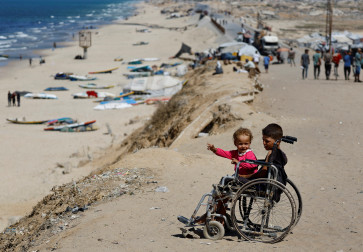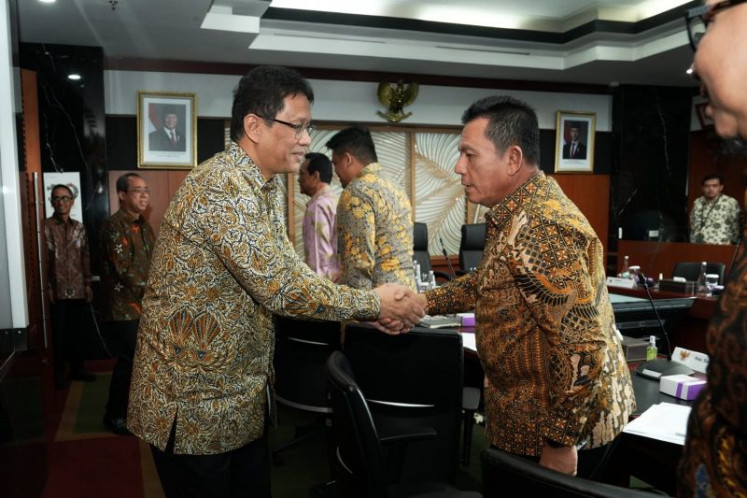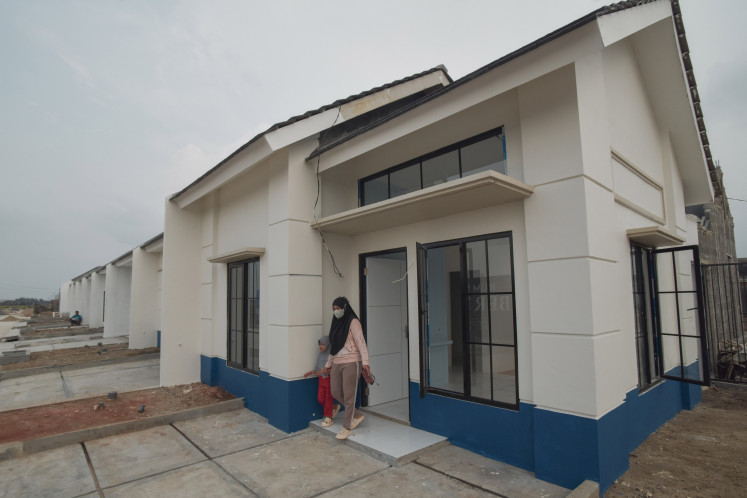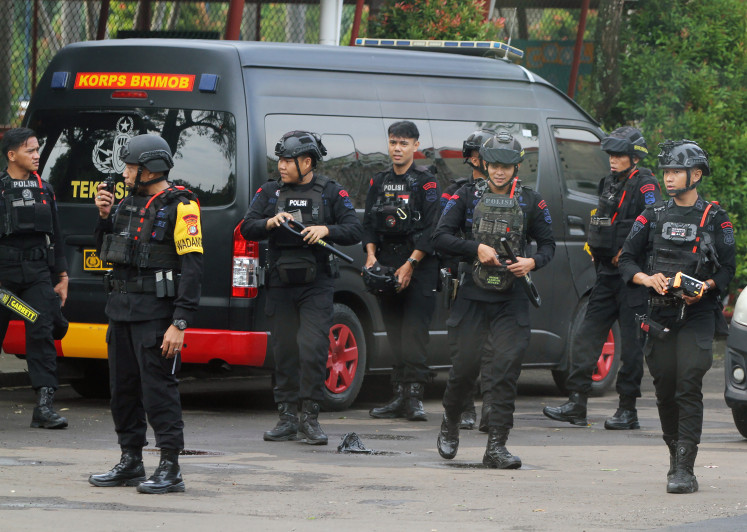Popular Reads
Top Results
Can't find what you're looking for?
View all search resultsPopular Reads
Top Results
Can't find what you're looking for?
View all search resultsDefining Jokowi's vision of a maritime axis
There are many views on how newly inaugurated President Joko âJokowiâ Widodoâs maritime axis vision should be translated
Change text size
Gift Premium Articles
to Anyone
T
here are many views on how newly inaugurated President Joko 'Jokowi' Widodo's maritime axis vision should be translated.
Some drag the tone into a power-play, where the maritime axis is about lifting archipelagic Indonesia onto the world stage by becoming a military maritime power.
Others may pay more attention to the lower-end goal, by stressing the effort to improve the lack of infrastructure that hinders the movement of people and goods.
Food is the energy of the people and oil and gas is the energy for the country's economy, but our water is an abundant source of energy. It is time for the president-elect to walk the talk in emphasizing policies that directly benefit people as pledged during his campaign.
Being a strong military maritime power is necessary. The country hosts the busiest strait in the world, with around 3,000 ships per day passing through the Indian Ocean and the South China Sea. The strait transports up to 80 percent of China's crude oil imports. These important roles highlight Indonesia's significance in the eyes of the great powers.
Other issues such as illegal fishing and people smuggling require more than current efforts if the country really wants to take control of its 3.3 million square kilometers of water.
Yet the maritime axis might deal with more than just the business-as-usual issues. Its power could be equal to China's or the US', where its technology and outreach are globally vibrant. All in all, this kind of maritime power benefits people in the sense of providing security.
Indonesia's contribution to the UN Convention on the Law of the Sea (UNCLOS) established so-called territorial waters agreed upon by the international community. It not only connects land, but also concerns land itself, where we hold total sovereignty to exploit abundant resources.
The law also constituted exclusive economic zones and a continental shelf from which the country could benefit immensely in terms of resources ranging from fish to minerals, from seaweed to oil and gas.
If the maritime axis is huge, then it could be defined as the largest maritime industry in the world, with Indonesia being the biggest fresh and canned fish exporter as well as the most populous offshore mining station in the world.
In this regard, the maritime axis implies a great maritime-driven economy that benefits the livelihoods of the people.
Amid the dynamics of Asian economic growth, Indonesia's maritime area is significant as it is home to nearly 60 percent of its oil and gas potential, which is substantial in fueling the country's vision pledged in the Master Plan for the Acceleration and Expansion of Indonesian Economic Development (MP3EI) to be a developed country by 2025.
In terms of renewable energy, the conversion of wave power and tidal current power is growing into a crucial sector of renewable ocean energy. In addition, research by the Agency for the Assessment and Application of Technology (BPPT) shows that on paper, the energy of sea streams can be transformed to electricity amounting to 6000 megawatts.
In this sense, a combination of new oil and gas exploration and the significant development of renewable ocean energy could transform Indonesia into a distinguished maritime energy country. Such energy will not only meet Indonesia's needs, but will also be the source of regional or even global energy needs.
If the key words are 'directly benefiting the people,' then the strategy of Indonesia to become a maritime axis must be securing the country's economy and energy.
Being a maritime power should be viewed as an important part of guarding Indonesia to achieve its national interest and the needs of the people, as at the end of the day, economic and energy security will not only enable us to feed both ourselves and future generations, but also enable us to become a real power player in the world when resources become scarce.
It is logical to assume that generation after generation, Indonesian society has more or less inherited maritime-related culture and behavior. However, the legendary maritime kingdom of Sriwijaya, the bravery of which resonated throughout Southeast Asia, is now faced with the fact that the center of gravity is no longer on water.
If the new government's intentions are true, the maritime axis will first and foremost bring back the mind-set that glory is conquering the oceans. This mind-set will in turn drive the people to galvanize all available resources to work with the government in realizing Indonesia as the world's maritime axis.
_______________
The writers work for the Foreign Ministry. The views expressed are their own.










